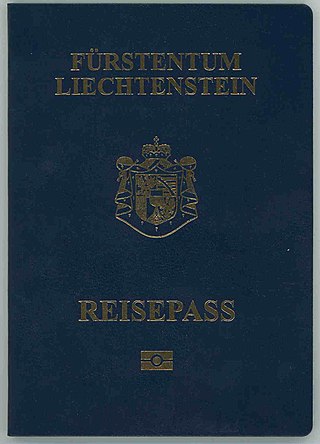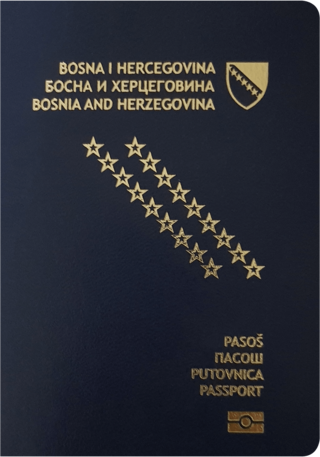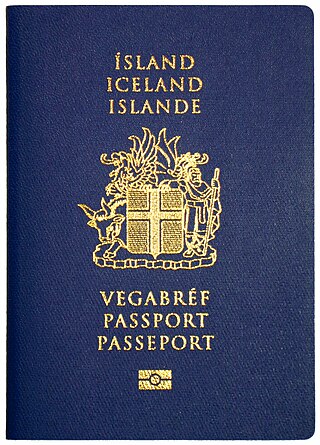
The Council of the European Union, often referred to in the treaties and other official documents simply as the Council, and informally known as the Council of Ministers, is the third of the seven Institutions of the European Union (EU) as listed in the Treaty on European Union. It is one of two legislative bodies and together with the European Parliament serves to amend and approve or veto the proposals of the European Commission, which holds the right of initiative.

COREPER, from French Comité des représentants permanents, is the Committee of Permanent Representatives in the European Union, made up of the head or deputy head of mission from the EU member states in Brussels.

Art forgery is the creation and sale of works of art which are falsely credited to other, usually more famous artists. Art forgery can be extremely lucrative, but modern dating and analysis techniques have made the identification of forged artwork much simpler.

Croatian passport is issued to citizens of the Republic of Croatia for the purpose of international travel. The passport has the purpose of serving as proof of Croatian citizenship and identity. Responsibility for their issuance lies with the Ministry of the Interior; and for citizens abroad, passports are issued by the local embassy or consulate. Croatian passports are valid for ten or five years, and are not renewable. Every Croatian citizen is also a citizen of the European Union. The passport, along with the national identity card allows for free rights of movement and residence in any of the states of the European Economic Area and Switzerland.

The General Secretariat of the Council of the European Union (GSC), also known as Council Secretariat, assists the Council of the European Union, the Presidency of the Council of the European Union, the European Council and the President of the European Council. The General Secretariat is headed by the Secretary-General of the Council of the European Union. The Secretariat is divided into seven directorates-general, each administered by a director-general.

A Norwegian passport is the passport issued to nationals of Norway for the purpose of international travel. Beside serving as proof of Norwegian citizenship, they facilitate the process of securing assistance from Norwegian consular officials abroad.

Liechtenstein passports are issued to nationals of Liechtenstein for the purpose of international travel. Beside serving as proof of Liechtenstein citizenship, they facilitate the process of securing assistance from Liechtenstein consular officials abroad.

Swedish passports are issued to nationals of Sweden for the purpose of international travel. Besides serving as proof of Swedish citizenship, they facilitate the process of securing assistance from Swedish consular officials abroad.

A Danish passport is an identity document issued to citizens of the Kingdom of Denmark to facilitate international travel. Besides serving as proof of Danish citizenship, they facilitate the process of securing assistance from Danish consular officials abroad.

An Austrian passport is an identity document issued to citizens of Austria to facilitate international travel. Every Austrian citizen is also a citizen of the European Union. The passport, along with the national identity card, allows for free rights of movement and residence in any of the states of the European Economic Area and Switzerland.

The European Union itself does not issue ordinary passports, but ordinary passport booklets issued by its 27 member states share a common format. This common format features a colored cover emblazoned—in the official language(s) of the issuing country —with the title "European Union", followed by the name(s) of the member state, the heraldic "Arms" of the State concerned, the word "PASSPORT", together with the biometric passport symbol at the bottom center of the front cover.

The Algerian passport is an international travel document issued to citizens of Algeria, and may also serve as proof of Algerian citizenship. Besides enabling the bearer to travel internationally and serving as indication of Algerian citizenship, the passport facilitates the process of securing assistance from Algerian consular officials abroad.
The Public Register of Authentic Travel and Identity Documents Online (PRADO) is an online repository of security features in travel documents maintained by the Council of the European Union. It contains information on some of the most important security features of identity and travel documents of countries within the European Union, all Schengen Area countries, of other neighbouring countries, and third countries worldwide.

The Bosnia and Herzegovina passport is a passport issued to citizens of Bosnia and Herzegovina for international travel.

A European Union laissez-passer is a travel document issued to civil servants and members of the institutions of the European Union. It is proof of privileges and immunities the holders enjoy. The document is valid in all countries of the European Union as well as in over 100 other countries. In 2006, the European Commission issued or renewed 2,200 laissez-passer, and other agencies may issue the document as well.

The European Banking Authority (EBA) is a regulatory agency of the European Union headquartered in La Défense, Île-de-France. Its activities include conducting stress tests on European banks to increase transparency in the European financial system and identifying weaknesses in banks' capital structures.

National identity cards are identity documents issued to citizens of most European Union and European Economic Area (EEA) member states, with the exception of Denmark and Ireland. As a new common identity card model replaced the various formats in use from 2 August 2021, recently issued ID cards are harmonized across the EEA, while older ID cards are currently being phased out according to Regulation (EU) 2019/1157.

Passports of the EFTA member states are passports issued by the European Free Trade Association (EFTA) member states Iceland, Liechtenstein, Norway and Switzerland. EFTA is in this article used as a common name for these countries.

The ninth European Parliament was elected during the 2019 elections and sat until the Tenth European Parliament was sworn in on 16 July 2024.

Passports in Europe are issued by each state individually, e.g. the Netherlands or United Kingdom. In general, passports issued in Europe either grant the holder the right of freedom of movement within the European Economic Area, to those that don't. The majority of European states are members of the European Union, and therefore issue EU passports.